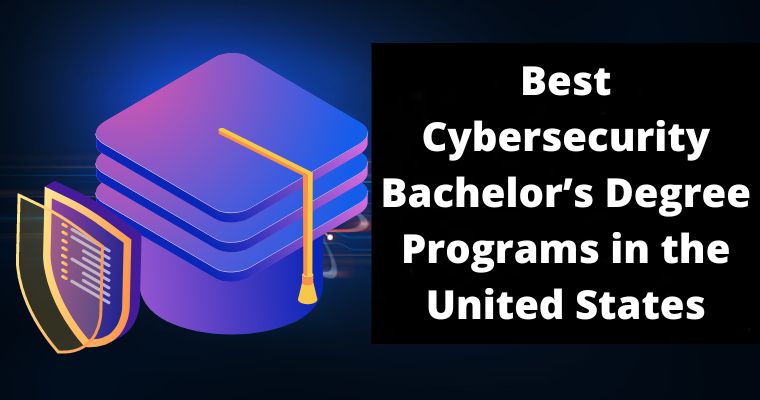The UMBC university only focuses on breaking the barriers and pushing the students forward to live their dream. The university offers master’s, certification, and accelerated BS/MPS.
To apply for the master’s program, UMBC does not require GRE scores. Students with a bachelor’s degree in CSE, IT, or related fields with eligible GA can apply.
Master’s in Cybersecurity at University of Maryland – Baltimore County
To pursue your dreams further in cybersecurity, enroll in Master’s of Professional Studies: Cybersecurity at the University of Maryland – Baltimore County.
The course outcome will be good knowledge of both the technical and non-technical sides of cybersecurity. It is a ten-course graduate program.
At the end of this program, the students will be well trained to face real-world projects and meet the requirements of corporate companies.
This course will not be like any other normal master’s degree provided by other universities. We mentor our students with actual live projects to make them grasp the concepts.
Prerequisites to complete the program
Since Master’s in Professional Studies: Cybersecurity is a 10-course program, it is required that the students earn their credits in all the courses to complete their masters.
The total credits to be earned by the end of the course will be 30, which is split into 18 credits for mandatory courses and 12 credits for elective courses.
- 6 Required courses ( 18 Credits)
- 4 Elective courses (12 credits)
Major courses included in the program
The six mandatory courses and gist about the stuff you will gain from the program are listed below. Students can take this course before reaching the requirement if the instructor approves.
- Intro to Cybersecurity
This course is all about the basic introduction to the cybersecurity field. If the student has previous knowledge about this field and has a CISSP designation acquired within the last five years, then the student can select another course after approval.
If not, then it is mandatory to attend this course before the end of the second semester.
- Cybersecurity Law & Policy
Intellectual property, cybercrime, and homeland security are a few topics that will be covered in this course. At the end of this class, the students will better understand cybersecurity, its national policy, international policy, and legal considerations.
To be a part of this course, the student should enroll in the CYBR program.
- Managing Cybersecurity Operations
To take up this class, students should at least be in the second semester and have completed the Intro to Cybersecurity course.
This is a very important course that requires implementation and learning with live projects. Students will be involved in handling threats, vulnerability, and ethical issues.
- Cybersecurity Project
After completing the above three courses, the students have to take up this cybersecurity project. It is a way to analyze the capabilities of the student.
Involving everything they learned, the students build their projects to reach the final milestone of the course. It is best advised to take up this class in the final semester.
- Enterprise Security
The major goal of this course is to help the students handle both internal and external threats.
The course outcome is to handle security for core businesses and enterprises. Students will be trained to implement core levels of security architecture like a firewall and VPN.
- Risk Analysis and Compliance
This division, of course, focuses on building the project by analyzing the risk. NIST SP 800-12, SP 800-37, SP 800-39, and CERT/CC frameworks are covered in the class.
After the end of the course, students will be able to build and maintain a secure framework for an enterprise.
Elective courses available
The students must select four courses from the given options. They are categorized under different mainstream programs.
It is best if the students choose a course related to core cybersecurity that will help them gain additional knowledge about the course. Elective courses available are listed below.
| Emergency Management Specialty Track |
| EHS 636: Disaster Response |
| EHS 634: Disaster Mitigation |
| EHS 638: Disaster Preparedness |
| EHS 637: Disaster Recovery |
| Strategy & Policy Certificate Courses |
| CYBR 622: Global Cyber Capabilities and Trends |
| CYBR 623: Cybersecurity Law & Policy |
| CYBR 621: Cyber Warfare |
| Digital Forensics Certificate |
| CYBR 643: Advanced Digital Forensics |
| CYBR 641: Cybercrime Investigations |
| CYBR 642: Introduction to Digital Forensics |
| Other ElectivesCMPE 685: Principles of Communications NetworksCMSC 644: Information AssuranceCYBR 644: Cyber Practitioner Development LabCYBR 691: Special Topics in CybersecurityCMSC 687: Introduction to Network SecurityCMSC 691: Special Topics in Computer ScienceCMSC 652: Cryptography and Data Security |
Perks of the course and University of Maryland – Baltimore County
- The strong partnership with UMBC and Maryland Carey Law will help the students understand the policies and cyber laws.
- The course is cost-efficient since the program covers all the core topics related to cybersecurity.
- The program can be finished in less duration than trying to master each major separately.
- UMBC accepts transfer credits from Maryland Carey Law courses.



